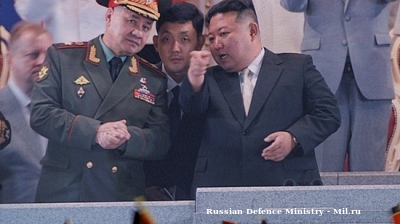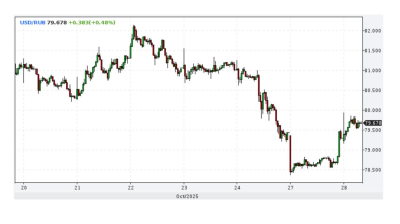A woman in Russia’s Saratov region faces charges for the first time ever of "demonstrating an extremist organisation’s symbols" after posting an image of the LGBT’s rainbow flag on Instagram, Meduza reported on January 19.
Russian recently beefed up its anti-gay laws to make “promoting” alternative sexualities illegal and has been cracking down on LGBT groups.
The potential consequences include a fine of up to RUB2,000 ($23) or up to 15 days in jail, with a repeat offence classified as a felony, carrying a possible four-year prison sentence.
The Supreme Court's ruling, previously held behind closed doors, has now been disclosed, recognising the "LGBT Movement" as an "extremist organisation." This ground-breaking decision has elicited sharp condemnation from human rights advocates.
In a sweeping narrative, Russia’s Supreme Court frames the LGBT rights movement as a foreign imposition threatening Russia's "thousand-year-old" culture, emphasising the clash between values and traditions predestined by the nation's heritage and the perceived ideological and values expansion of the LGBT movement.
Polls show that homophobia is widespread in Russia, with some three quarters of Russians regarding alternative sexualities as a “sickness.” However, most Russians remain fairly tolerant of homosexuality as long as there are no public displays of same-sex affection.
In particular, for decades Moscow has had a vibrant gay scene, with many gay clubs allowed to operate without interference. Former president Boris Yeltsin repealed the Soviet laws making homosexuality illegal in 1996 as part of Russia’s accession to the Council of Europe.
Since the recent change in the laws, the authorities’ attitudes to homosexuality have hardened and Moscow’s gay nightclubs have been raided, although they remain open in what looks more like intimidation rather than an outright ban. Homosexuality remains legal, although the display of Gay Pride symbols and images are banned. Russia has never had a Gay Pride march, despite multiple attempts to organise one by activists and the widespread holding of Gay Pride marches in the rest of the former Warsaw Pact countries.
A recent example of the tougher line on public displays of homosexual “propaganda”, a scene in the recent “Barbie” movie, where the character Ken receives two kisses from other men, was blurred out in the version of the movie on release in Russia.
The crackdown on the LGBT community is wrapped up in Russia’s war on the West, as Russian President Vladimir Putin is campaigning on a platform of “conservative family values” rooted in the Orthodox Church’s traditions, which remains stoutly homophobic. More specifically, Putin has sought to portray the West as “decadent” by highlighting the very public displays of alternative sexuality – an effective rhetorical line in Russia that is generally accepted by the public.
Russia’s Justice Ministry has identified "more than 40 major LGBT-oriented divisions" within the Russian LGBT movement, Meduza reports, pinpointing 281 individuals propagating the LGBT ideology and participating in its actions.
Additionally, the ministry claims the movement operates more than 80 online resources without age restrictions and receives centralised funding, as well as claiming it receives foreign support, which qualifies it as a “foreign agent,” that also brings many restrictions thanks to other more general law changes restricting political activity in Russia since 2021. The LGBT movement's decentralised nature is acknowledged, expanding through "cells" to over 60 regions across Russia.
The ruling claims that the phantasma of an organised "international LGBT movement" is a foreign threat and smacks of the “international Jewish conspiracy” to take over the world, which was an invention of the last Tsar’s Okhrana secret police, promulgated in the book Protocols of the Elders of Zion, which is still on sale in Russia.
As part of its ruling, the court claimed that the LGBT “movement” has been active in Russia since 1984 and described it as part of an American campaign to "limit population growth." Russia has been suffering from a severe demographic crisis, the countering of which has been central to Putin’s policies from his first day’s in office, as described in the bne IntelliNews feature Putin’s babies.
The court alleges that the LGBT movement now poses “a threat to Russia's demographic situation.” Furthermore, the court embraces arguments reminiscent of Western conservative objections to LGBT rights, citing the movement's impact on traditional family values, mental health concerns for young people, and violations of the rights of religious individuals.
The court also turned back common criticism asserting that the "LGBT movement" spreads "disinformation" about discrimination faced by the LGBT community in Russia. The court also acknowledges claims of "radicals" assuming superiority and engaging in practices akin to "cancel culture."
News
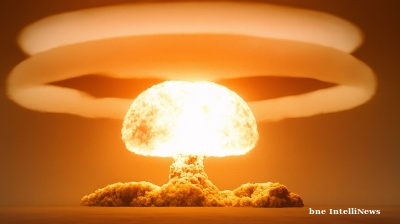
Russia withdraws from Cold War plutonium disposal pact with US
Russian President Vladimir Putin has formally withdrawn from a key arms control agreement with the United States governing the disposal of weapons-grade plutonium, as the few remaining nuclear security accords between the two powers vanish.
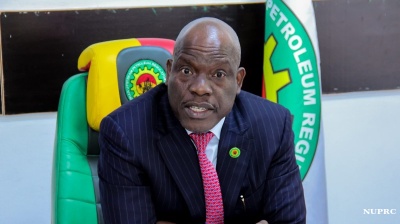
Nigeria’s NUPRC holds exploratory talks with Bank of America on upstream financing
Nigeria's upstream regulator, NUPRC, has held exploratory talks with Bank of America as the country looks to attract new capital and revive crude output, after falling short of its OPEC+ quota.
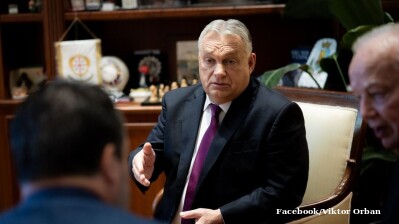
European diplomacy should have stopped war, Orban tells Italian broadcaster
The job of European diplomacy would have been stopping the war in Ukraine, but Brussels has become "irrelevant" by deciding not to negotiate, Prime Minister Viktor Orban told an Italian TV channel on October 28.

Zelenskiy allows the start of controlled arms exports
President Volodymyr Zelenskiy ordered Ukraine’s Ministry of Defence to begin the controlled export of domestically produced weapons starting in November for the first time in the hope of boosting production and attracting investment.
